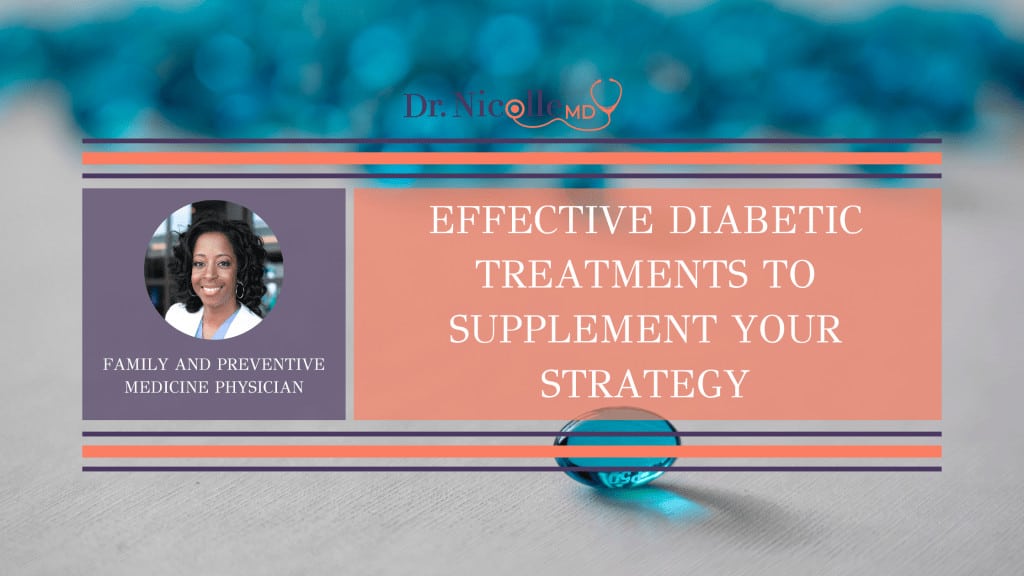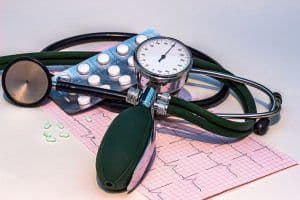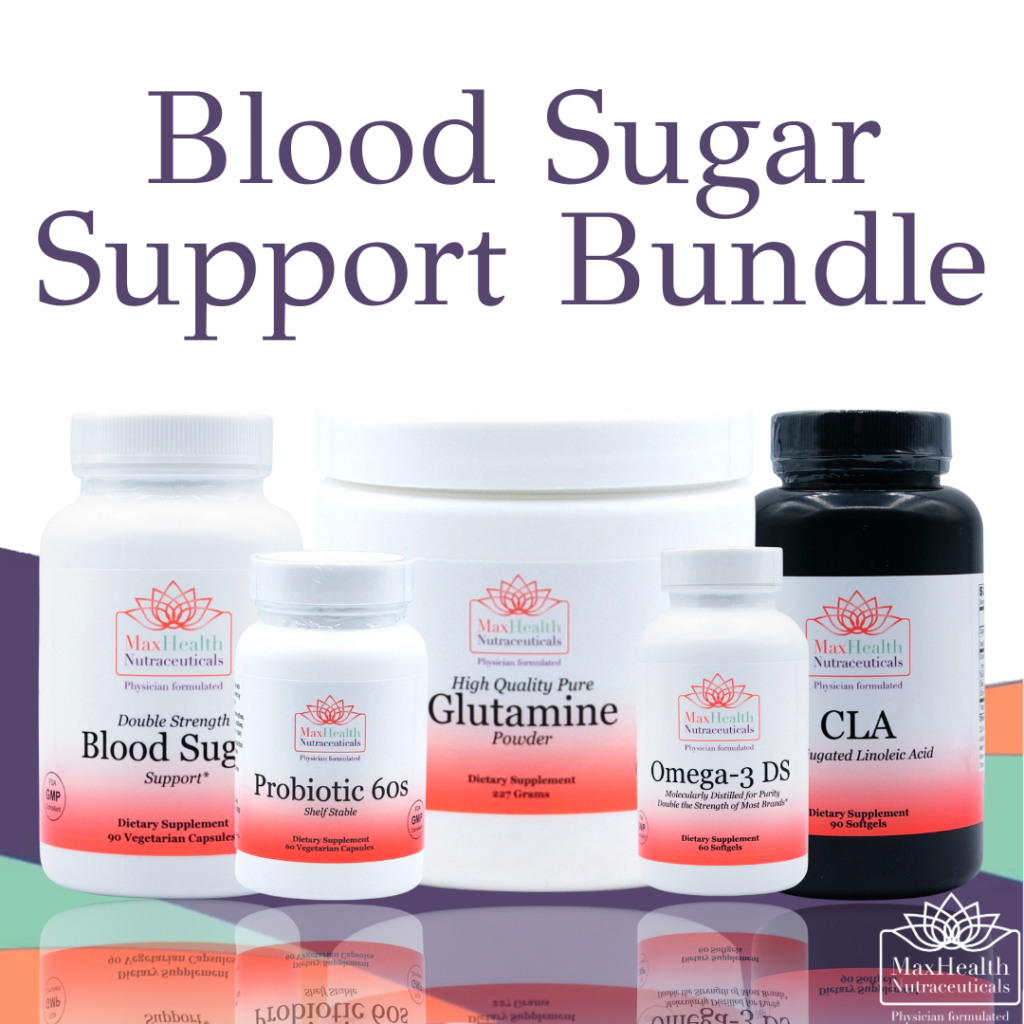

Understanding the type of diabetes you have is part one of this journey. However, research in the pursuit of a cure for type one diabetes (T1D) and type two diabetes (T2D) has unveiled more interesting treatment supplementation options.
No one deserves to suffer from the potential complications of this debilitating condition, and using the correct medications assisted by expert homecare and lifestyle changes can make a huge difference.

Friends Are Beneficial
Often, taking care of your condition at home with expert guidance is enough to elude the consequences of T2D. However, isolation and loneliness can impact your progress when you’re trying to manage diabetes.
A study published in the BMC Journal in 2017, called “the Maastricht study,” provided a new outlook on socializing and diabetes. With nearly 3,000 participants between 40 and 75, the study showed a correlation between diabetes and loneliness.
Social activity was collected from all participants through self-report questionnaires. A third of the participants were either diagnosed with T2D before or during the experiment.
The study found that male and female participants with smaller social networks were more likely to suffer from T2D.
Additionally, the proximity of the social network, including friends and relatives, was another determining factor for women with T2D, while men with housemates were less likely to have T2D.
The three main social factors contributing to T2D and its magnitude are social isolation, no friends close by, and too few friends and interactions. Although no clear scientific basis is known for these findings, the correlation is quite intriguing and likely has significant value.
High-risk T2D people should broaden their networks and increase social interaction frequency as it may improve diabetes management.

A Common Supplementation
People with T1D should also follow expert advice to care for themselves at home; however, they might have another interesting advantage with a different medication.
The University of Colorado Anschutz Medical Campus found that a common drug listed on the World Health Organization’s (WHO) essential drugs list also doubles as a diabetic supplement for people at risk of T1D or the progression of its early stage.
A blood pressure drug called Methyldopa has proven to block the human leukocyte antigen serotype group eight (HLA-DQ8) molecule, which is responsible for attacking your beta cells in the development of T1D.
About 60% of people who have a risk of developing T1D possess this molecule.
A supercomputer was used to run algorithms to determine the efficacy of the Methyldopa, and not only did it prevent the molecule from destroying beta cells, but it also didn’t impair other immune cells.
The university researched the drug over ten years on mice and T1D patients.

The greatest goal of this medication is to delay the onset of T1D, and it’s worthwhile to discuss this treatment with your physician if you have the HLA-DQ8 trait.
Weight Loss and Diabetes
Before diving in, understand that remission of diabetes is not a cure. You should also understand that remission of diabetes is not possible with T1D. Only sustained lifestyle changes will maintain remission of T2D.
The best evidence of diabetic remission is through weight loss. Losing a mere five percent of your body weight can lead to remission. This was confirmed in a pilot study by McMaster University in Canada conducted to see if weight loss causes remission.
Eighty-three participants with T2D were placed on an 8- or 16-week intensive metabolic program combined with oral medication and lifestyle therapies to lose weight.
Forty percent of the participants managed to quit their medication at the end of the program. In addition, 28 individuals were still in remission after the three-month post-trial check-up.
Research performed at the University of Southern California successfully reversed T2D in mice with a fasting-mimicking diet, which includes minimal calories and fasting that promotes cellular regeneration to increase beta cells.
The most profound results came from the Diabetes Remission Clinical Trial (DiRECT), which found evidence of diabetes reversal in T2D. The UK study included 298 patients.
Participants were limited to no more than 850 calories a day over five months, and this included plenty of water, health shakes, and low-calorie soups.
Incredibly, 46% of the participants were in remission 12 months later, and 70% of these participants were still in remission 24 months later.
Participants who lost 22 pounds were successful after the first year. However, participants who lost 33 or more pounds were more successful in remission after the second year.
Remission was determined in patients who sustained long-term blood glucose levels of 48 millimoles per mole (mmol/mol).

Losing weight is undeniably the best way to reverse T2D.
Food For Thought
Managing diabetes type one or two is becoming simpler with the research behind supplementary lifestyle and drug changes. Dropping a few pounds is never a bad idea.
If you would like to receive a free resource sheet to help you take control of diabetes, click the button below to receive your gift.
I wanted to talk about this topic because it is absolutely possible to prevent and even reverse Type 2 Diabetes (but you cannot reverse Type 1). Yes, it’s possible! and emerging studies looking at lifestyle medicine and prevention support this! But I always tell my patients that you must be dedicated and diligent in adopting a healthy lifestyle to get the best results. You can create certain behaviors and practices that will not only enrich your life, but that you can pass on to your family, friends, and community, to help break the cycle of this chronic disease so that you can leave a legacy of health to your loved ones.
I use functional medicine and lifestyle medicine as the first line of treatment, before medications, to treat lifestyle-related chronic diseases. Lifestyle-related chronic diseases include diabetes, hypertension, obesity, and some cancers, just to name a few. Lifestyle practices, such as eating a low glycemic, whole-food plant-based diet and regular physical activity, can help you improve your blood sugar levels, maybe reverse type 2 diabetes. In certain cases, these approaches may even outperform pharmaceutical therapy.
But I always tell my patients that conventional medications may be appropriate at this time to prevent catastrophic illness, but over time, you can work to make the necessary lifestyle changes to possibly reduce and/or eliminate medications. Please remember to always consult your physician for your particular needs and circumstances prior to making any decisions whatsoever.
Is Dietary Supplementation Right For You?
When it comes to managing your blood sugars (in general), pre-diabetes, and diabetes, there are many things that you can do to help control your blood sugar levels. One important aspect is diet. What you eat affects your blood sugar, so it’s important to be mindful of what goes into your body.
But it is very important to note that we are not eating the same foods we ate years ago because the soils have been depleted of critical nutrients through current industrial farming practices. And because the soil is not as good as it used to be, the food supply (grown from the depleted soil) is not as good as it used to be. For example, you are not getting the same levels of chromium and magnesium as you would have gotten 30 or even 50 years ago.
Second, much of the food has been processed and genetically altered, which can impact the inherent and unique nutritional composition that each food possess. For example, ancient einkorn wheat has less gluten, more protein, more Vitamin A, and more beta carotene, than modern genetically modified wheat.
Third, the toxic load in the environment today is much higher than 100 years ago. We can see this with global warming, toxic landfills, polluted oceans and waterways, etc. Toxicity levels interfere with nutrient assimilation and absorption not just into the foods, but into our bodies as well. We often see elevated blood sugar levels with poor nutrition and toxicity.
In addition to diet, there are dietary supplements that can have an impact on blood sugar levels. Dietary supplements for diabetes are becoming increasingly popular as people look for ways to improve their blood sugar control.
For some people, vitamin and mineral supplements offer important health benefits. Supplements are designed to fight deficiencies found in our diet and complement the food we eat regularly. Supplements are basically “helping hands” to our daily food.
If you suspect that you aren’t getting the nutrients you need, consider shifting your focus from supplements to eating better.
And if you are unable to eat better, the supplements in my Blood Sugar Support Bundle may provide the extra boost you need.
These are my favorite Diabetes Prevention Supplements to use! This Blood Sugar Support Bundle will ensure you have the intake of the important vitamins, minerals, and probiotics to decrease inflammation and boost your innate wellness day and night. Taken together, it’s a solid plan for increasing your body’s natural resiliency while encouraging healthy blood sugar levels.
For best results make sure you use these supplements with dietary changes including a whole food plant-based diet, regular exercise (at least 2-3x per week), regular sleep (8 hours per night), and intermittent fasting (at least 1-3x per week).
It’s important to note that supplements are NOT a replacement for your regular medication regimen prescribed by your doctor. However, they can be used in addition to help manage your blood sugar levels.
Supplements have the potential to interact with diabetes medications, so it’s important to speak with a healthcare provider before starting any new supplement regimen. Have you tried any dietary supplements for your diabetes? Share your experience in the comments below!
Tools For Diabetes Prevention and Monitoring
Blood Sugar Monitoring
As you know, I always stress the importance of taking control of your health. Monitoring your blood sugar levels is one of the best ways to do this. To do this, a single drop of blood is collected with disposable lancets and placed on a disposable test strip, which you insert into a home blood-sugar monitoring device, called a glucometer.
The common times for checking your blood sugar are when you first wake up (fasting), before a meal, 2 hours after a meal, and at bedtime; however, you should check your blood sugar as many times a day as your health care team suggests.
Monitoring your blood sugar level provides you and your doctors with important knowledge about how food, activity, medication, stress, and other elements might affect your blood sugar levels. This data will assist you and your doctor in developing a therapy plan that is suited to your demands.
There are several types of blood glucose meters, lancets, and test strips to choose from. I often recommend this glucometer, lancets, and test strips.
Weight Monitoring
Since weight management is very important in combatting chronic diseases such as diabetes, I recommend that you be mindful of your weight and its fluctuations, and that you monitor your weight AT LEAST on a weekly basis. I recommend a scale that includes a body composition monitor (*this scale cannot be used with a pacemaker or other implanted devices).
Physical Activity
Physical activity (or exercise) can improve your health and reduce the risk of developing several chronic diseases like high blood pressure, type 2 diabetes, and cancer, just to name a few. Physical activity actually improves insulin sensitivity. Physical activity can improve your mood, boost your immune system, and even help you maintain a healthy weight.
I often recommend yoga and resistance training for physical activity, but as you are aware, there are plenty of forms of “movement” that you can do! But for the basics, especially if you’re just getting started, yoga and resistance training are where I would start.
Yoga
Yoga can be a great way to improve your strength and flexibility, manage your stress, improve your heart health, and lose weight! I recommend using this yoga mat to get started with your yoga practice today!
Resistance Training
Resistance training is the mainstay for overall health. It not only has beneficial effects on reducing body fat, it also increases muscle size and strength. Here are some basic resistance bands that I recommend to everyone. They are great for physical therapy, yoga, strength training, and excellent for traveling.
Food!
Remember, living a healthy lifestyle including eating a whole foods plant-based diet and regular physical activity are the best ways to prevent diabetes.
The Diabetes Meal Plan is geared towards those people with diabetes or prediabetes. The foods are moderately low in carbs, low glycemic, fiber rich, and contain a balance of nutrients to help prevent blood sugar spikes and dips. Foods are also included that may help to lower blood sugar.
Please talk with your doctor about any complementary health approaches, including supplements, you use.
Dr. Nicolle Martin
Some of the links in this article are "affiliate links", a link with a special tracking code. This means if you click on an affiliate link and purchase the item, we will receive an affiliate commission.
The price of the item is the same whether it is an affiliate link or not. Regardless, we only recommend products or services we believe will add value to our readers.
By using the affiliate links, you are helping support our Website, and we genuinely appreciate your support.
Last updated on January 28th, 2022 at 06:57 am

Minimize Medications. Maximize Health.
Are you super busy but need to take control of your health? Are you tired of being tired? Subscribe to my “Minimize Medications, Maximize Health Blog” and I’ll give you 7 Tips to Get Healthy in No Time absolutely FREE.







